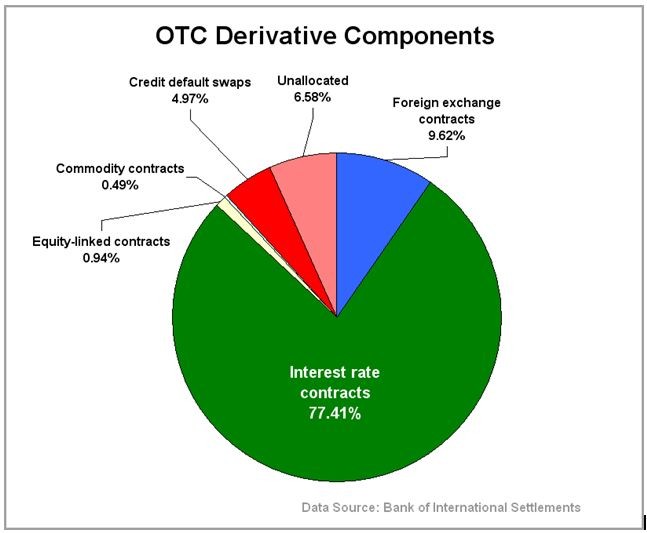Derivatives in ETFs Forwards Futures Swaps Options
Post on: 27 Август, 2015 No Comment

Forward Contracts, Futures, Swaps and Options
You can opt-out at any time.
Please refer to our privacy policy for contact information.
There are a lot of ETFs that contain equities in order to accurately track their correlating index. Most of these are index ETFs. However, certain ETFs may also have other products in their holdings, such as other ETFs or derivatives. This allows the funds to correlate with a benchmark when equities alone will not accomplish the investing goal.
Most commonly, commodity funds. leveraged ETFs and inverse exchange traded funds use derivatives to track their benchmarks instead of stocks. However, in the case of many funds, it can also be a combination of stocks and derivatives.
The most common derivatives found in an exchange traded fund are futures, especially in a commodity ETF. But there are funds that utilize forwards, swaps, and options (calls and puts). So as I have always preached, it’s not only important to know how your fund works, but what’s in your ETF as well. And since derivatives are in a multitude of ETFs, I wanted to cover the different types you may find in your fund.
Forward Contract Derivatives
A forward contract is an agreement between a buyer and a seller to trade a certain asset at a later date – predetermined by those involved in the transaction. The agreement will include the terms of the actual asset, the value or price, and the delivery date.
Unlike other derivatives (futures and options), forward contracts are not publicly traded on an exchange. They are private agreements between traders, investment banks, corporate entities, etc. And since forwards are privately traded, they are typically unregulated as well.
Futures Contracts Derivatives
A futures contract is very similar to a forward contract, but there are some key differences. Unlike forwards that are privately traded, futures are traded publicly on exchanges and for that reason, they are highly regulated by the SEC (Securities Exchange Commission). Also, because they are regulated, there isn’t any default risk, whereas there is always default risk on a private contract such as a forward.
Also, futures are designed to be more liquid. Since they are publicly traded on an exchange, you have the ability to trade in and out of futures positions. However, a forward is more of a custom contract that is typically designed to be held until its expiration.
Swap Contract Derivatives
A swap can be described as a series of forward contracts. It’s a contract between a buyer and a seller to enter multiple cash flow exchanges to be executed at preset future dates. Typically the value of these cash flows is determined by a dynamic metric such as an interest rate. However, one side of the transaction can be fixed cash flow agreement as well.
The main difference here is that a forward is a one-time deliverable contract, but a swap is made up of multiple predetermined trades.
Option Contract Derivatives.
There are two types of options – calls and puts. A call option is the right to buy a certain stock before or on an expiration date at a certain price. So if you have a November 25 Call for XYZ stock, you can buy XYZ stock on or before November expiration (Expiration is the Friday before the 3rd Saturday of the month) at a price of $25 from the seller of the call. If the stock price is $50, you would want to do this. If the stock price is $10, you wouldn’t.
The Put option is the opposite of the call option. In this case the holder of the put has the right to sell the stock at $25. If the stock is trading at $10, then this is a no-brainer. Execute the put and sell the stock at $25. If the stock is trading at $50, then you wouldn’t want to sell the stock at $25, so your put expires worthless.
There are definitely more nuances and implications of derivatives in an ETF or otherwise, but you should at least understand the basics if any of these methodologies are in your funds. And I will write corresponding content going into more details for each type of derivative. I will link to each article within this one once completed. In the meantime, make sure you are aware if there are any derivatives in your ETF and how they work.














